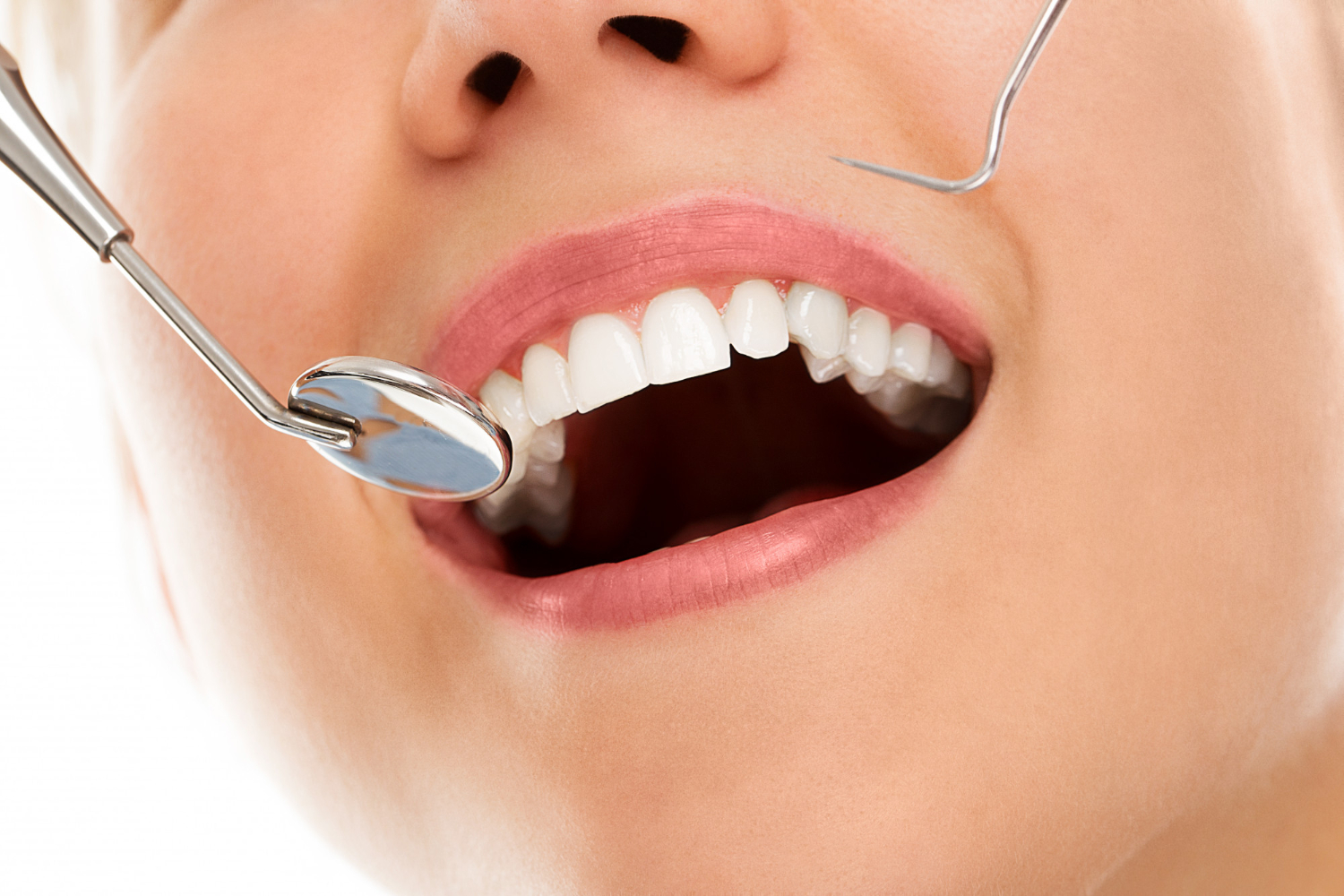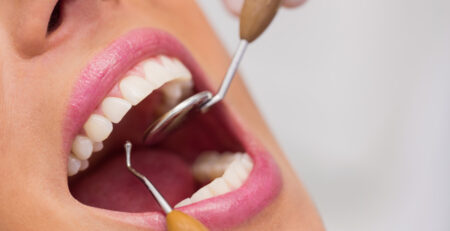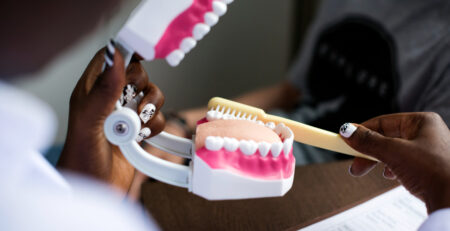Unmasking the Truth behind Tooth Sensitivity: Expert Advice from a Professional Dentist
Tooth sensitivity can be an unsettling experience, causing discomfort and pain that can affect your daily life. This dental issue is characterized by a sharp, fleeting sensation when your teeth come into contact with hot, cold, sweet, or acidic foods and beverages. Understanding the root cause of tooth sensitivity is the first step towards finding effective solutions to alleviate your discomfort.

The Science of Tooth Sensitivity
The outer layer of our teeth, known as enamel, acts as a protective shield. Underneath the enamel lies a layer called dentin, which contains microscopic tubules that lead to the nerve center of the tooth. When the enamel wears down due to factors like aggressive brushing, acidic erosion, or gum recession, the dentinal tubules become exposed, allowing external stimuli to reach the nerves, leading to that familiar zing of pain.
Common Causes of Tooth Sensitivity
There’s a myriad of reasons behind tooth sensitivity. Brushing your teeth with excessive force using a hard-bristled brush can erode enamel and expose dentin. Additionally, consuming highly acidic foods and beverages or having acid reflux can also contribute to enamel erosion. Gum recession caused by gum disease or improper brushing techniques can further exacerbate sensitivity. Identifying the root cause is crucial for effective treatment.
Signs and Symptoms: Is Your Tooth Sensitive?
Recognizing the signs of tooth sensitivity is essential for early intervention. If you wince while sipping hot coffee or feel a sudden jolt of discomfort when enjoying your favorite ice cream, chances are you’re dealing with tooth sensitivity. Even a sudden rush of air can trigger the nerves in your exposed dentin, causing a sharp twinge of pain.
Risk Factors for Developing Tooth Sensitivity
Certain factors increase your vulnerability to tooth sensitivity. Grinding your teeth (bruxism) can wear down enamel, as can habits like nail-biting or chewing on hard objects. If you’ve recently undergone dental procedures like teeth whitening or crown placement, temporary sensitivity might occur. Age also plays a role, as adults between 25 and 30 are more prone to sensitivity due to enamel thinning.
Diagnosing Tooth Sensitivity: When to See a Dentist
While occasional sensitivity might not be alarming, persistent discomfort warrants a dental visit. A Maple Ridge dentist can accurately diagnose the underlying cause of your sensitivity through a thorough examination, X-rays, and discussion of your symptoms. This diagnosis helps determine the best course of action for managing your sensitivity and preventing further complications.
Treatment Options for Tooth Sensitivity
Thankfully, tooth sensitivity is treatable, and several approaches can bring relief. Desensitizing toothpaste, containing compounds like potassium nitrate or strontium chloride, can block the nerve pathways, reducing sensitivity. Fluoride treatments can strengthen enamel and minimize exposure to triggers. In more severe cases, dental procedures like bonding, crowns, or inlays might be recommended to protect exposed dentin.

Professional Dental Care: What to Expect
Visiting a Maple Ridge dentist for your tooth sensitivity is a proactive step towards lasting relief. During your appointment, your Maple Ridge dentist will evaluate your oral health, identify the underlying cause of your sensitivity, and tailor a treatment plan to address your unique needs. This might involve recommending a specific toothpaste, suggesting dietary adjustments, or performing dental procedures if necessary.
At-Home Remedies for Tooth Sensitivity
Complementing professional treatment with at-home remedies can amplify the benefits. Using a soft-bristled toothbrush and practicing proper brushing techniques can prevent further enamel erosion. Avoiding highly acidic foods and beverages and managing acid reflux can also help. If you’re a habitual teeth grinder, wearing a night guard can protect your enamel while you sleep.
Prevention Strategies: Keeping Tooth Sensitivity at Bay
Preventing tooth sensitivity starts with a proactive approach to your oral hygiene. Opt for a fluoride toothpaste that strengthens enamel and maintains a proper oral care routine. Regular dental check-ups allow your dentist to catch issues early and recommend preventive measures. Limit your intake of acidic and sugary foods, as these can contribute to enamel erosion.
Additionally, using a soft-bristle toothbrush and gentle brushing techniques can help prevent abrasive wear on your teeth and gums. It’s essential to avoid excessive teeth grinding or clenching, which can exacerbate sensitivity issues. Consider using a mouth guard if you notice these habits during the day or night. Finally, maintaining a balanced diet rich in calcium and phosphorus can support overall oral health and strengthen your teeth, making them less susceptible to sensitivity. By incorporating these preventive strategies into your daily life, you can take proactive steps to keep tooth sensitivity at bay and enjoy a healthier, pain-free smile.
Dietary Habits and Tooth Sensitivity
Your dietary choices play a pivotal role in preventing and managing tooth sensitivity. Incorporate calcium-rich foods like dairy products, leafy greens, and almonds into your diet to promote strong enamel. Drinking water after consuming acidic foods can help neutralize acid levels in your mouth, reducing the risk of enamel erosion.
Additionally, it’s essential to limit your intake of sugary and acidic beverages such as soda, sports drinks, and citrus juices, as they can erode enamel and exacerbate tooth sensitivity. Cutting back on snacking between meals and opting for tooth-friendly snacks like crunchy vegetables or cheese can also contribute to better oral health. Furthermore, consider discussing your dietary habits with your Maple Ridge dentist, as we can provide personalized recommendations to ensure that your diet supports your overall dental well-being and helps you maintain a bright, healthy smile.
Debunking Tooth Sensitivity Myths
As with any health concern, tooth sensitivity comes with its fair share of myths. One common misconception is that sensitive teeth are a result of weak teeth. In reality, even strong teeth can become sensitive when enamel wears down. Another myth is that tooth sensitivity is a condition you have to endure; in truth, effective treatments and preventive strategies can significantly improve your quality of life. It’s also important to dispel the belief that tooth sensitivity only affects older adults. People of all ages can experience sensitivity, and understanding its causes and solutions can help you lead a pain-free and enjoyable life regardless of your age or dental history.

Experience Lasting Relief from Tooth Sensitivity with Lumina Dental: Your Path to a Comfortable Smile
Are you tired of wincing every time you enjoy your favorite foods or drinks? Lumina Dental is here to provide you with the expert care you need to conquer tooth sensitivity and embrace a pain-free lifestyle. Our experienced team of dental professionals is dedicated to identifying the root cause of your sensitivity and tailoring a comprehensive treatment plan that suits your unique needs. Don’t let tooth sensitivity hold you back any longer. Take the first step towards a comfortable smile today! Contact us to schedule your consultation and embark on a journey towards lasting relief. Your smile deserves the best – let Lumina Dental make it happen.











